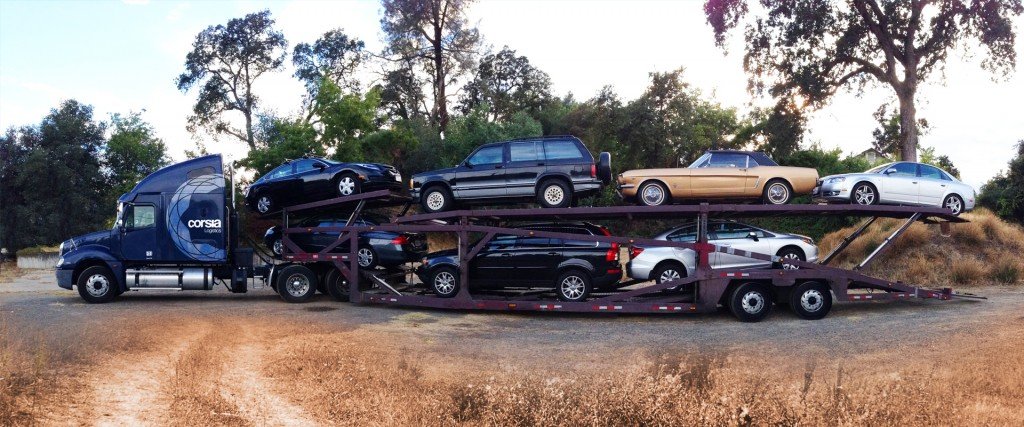The way we live and consume today is totally different from what it used to be in the past. Our priorities are different and constantly changing. We place value in different things now. Take car ownership, for example.
Whether you like it or not, cars cost the average American $9,000 every year. What’s even more shocking is that 96% of the time, the average vehicle is not even used at all. It’s just parked somewhere along with other cars that are rarely driven.
According to 1995 data from Reinventing Parking , “across the world cars seem to be parked at least 92% of the time and typically about 96% of the time. […] I doubt more up to date or accurate data sets would change this number much.”
If you go out and look around, you would not just see cars in motion. Quite the contrary! You will most certainly see lines of parked cars on every street. Walk a little further and you will see plenty of parking lots. These huge areas could have been served a much better purpose.
Will the way people use (or don’t) cars look different in the future?

I would love to own a Volkswagen Beetle or a Chevrolet Corvette one day. But that day still seems very far away for me. Not because these two cars, in particular, are too expensive and unrealistic for me to have. The truth is, I still haven’t had the real need to own a car. I can easily use public transport, Lyft, Uber, Sidecar, Flywheel, or any other transportation network company. As you can see, there are many convenient options that keep me from buying a car.
“The age of young people with driver’s licenses has been steadily decreasing ever since right around when I was born. In 1983, 92% of 20 to 24-year-olds had driver’s licenses. […] Today it’s just 24%. All told, a millennial today is 30% less likely to buy a car than someone from the previous generation,” according to a Lyft co-founder John Zimmer.
As you can see, the percentage of people who buy cars will most likely keep decreasing. Considering the fact that 92-96% of cars are parked most of the time anyways, using other means of transport instead of owning a car seems like a viable option for Americans, also beneficial for the environment.
That’s just the world we live in today. We have way too many transportation options. Owning a car, is simply just one of them, not necessarily the most important one.
Will transportation network companies kill private car ownership?
Before giving a definite answer, let’s look at the psychology of owning a car. What role does car ownership play in the lives of Americans? How are American roads constructed?
The psychology of owning a car
Having grown up in the Balkans has certainly taught me how important cars have been for many generations before mine.Being the car owner in the past surely meant a great deal.
In the US, during the early days of the automobile history, only the wealthiest of Americans had the luxury to own a car. But back then, vehicles weren’t a necessity for the masses.
Once cars started to be mass produced and transformed into a “necessary machine”, the whole picture changed. Car ownership has acquired a different meaning for Americans. It brought a sense of freedom and independence into their lives.
Fast forward to the 21st century, and you’ll see how different the picture looks nowadays. Although for the older generation of Americans, a car still represents power, freedom, and independence, for younger people, a personal vehicle is just another “possession”.
There are many other things younger generations identify with power, freedom, and independence. Thus, owning a car for them does not have the same meaning it did for their parents and great parents.
The role of car ownership in the lives of Americans
Owning a car is very American. Not only it is an important part of lives of Americans, but also of their identity. Americans love to drive. For them, a car is an epitome of convenience – a selling point that’s not easily avoided. They love to have the freedom of having as many cars as they want. According to studies, an average American family relies precisely on 2.28 cars, with 66% of Americans owning two or more cars.
The American roads
The more cars were built, the more roads and space they required. In America, roads and entire urban areas are built to accommodate cars, not communities. That’s our reality today, whether we like it or not.
Often, these roads and highways were built through city centers, giving cars access everywhere. As revolutionary as it sounds, this caused many communities to separate even further over the years, making cars not only a symbol of the new era but a necessity in order to survive it.
What does this all mean for the auto industry?
Since more and more people are willing to “replace” car ownership with other transportation options and continue to share cars in the future, what will happen with the auto industry? Will ride sharing have a negative effect on car shipping industry? Or will the industry stay strong no matter what people will use as means of transport in the future?
America runs on trucks
Americans don’t only love to drive, they also move a lot. All year round there are millions of people moving to different cities for different reasons. Whether it is searching for new love, new job, or simply because they want to breathe different air, Americans are all in when it comes to moving. Often, people who move need to move their cars as well. And that is very good news for moving and shipping industries which are an essential part of the economy.
Auto shipping has become a serious business in the US. In fact, this industry is expected to become even more important in the coming years. According to a research report by IBISWorld titled Vehicle Shipping Services in the US: Market Research Report, “the Vehicle Shipping Services industry’s strong performance largely reflects a rebound from a very low recessionary base in 2009. Over the five years to 2014, as pent-up demand was satisfied and interest rates began to increase, car sales slowed and vehicle freight volume growth declined. However, demand for industry services has begun to normalize, and industry revenue is expected to increase over the five years to 2019.”
Auto transport is not what you think it is

The auto shipping industry is not just like any other industry; it’s more complex than you may think. And while auto-transport is, at its core, a process of transporting a vehicle by an auto shipping company, in reality, things are not as simple. More often than not, transporting a vehicle implies thorough research and meticulous planning.
We hope this here will help you understand better what auto transport is all about.
How to move a car across the country?
Moving a car across the country it’s not something that can happen overnight. First. you need to research, request multiple quotes, and then hire the right moving company.Want to know how to choose the right company? Here is a guide to help you out.
But don’t think your job is done here. We encourage you to learn more about the auto transport process. Browse our FAQ to understand better how car shipping works.
In case it is your first time moving a car across the country, read our First Timer’s Guide to Car Shipping here. This article about how to ship a car you bought online might also come in handy.
How much does it cost to ship a car across the country?
There are many factors that affect the cost of shipping a vehicle. Shipping distance, vehicle make and model, the type of carrier you choose, vehicle condition, supply and demand, as well as how fast you need the car. If you’d like to read in details about all the factors that can affect the total car shipping price check out this article here.
Another important factor is the season you pick for shipping your car. In a few months moving season will knock at the door. If you are relocating soon, start planning now. We’ve created a guide to help you avoid unpleasant surprises. Also, make sure not to choose a car transporter solely based on car shipping price. Here is why.
To get a price and ship your car with Corsia Logistics, fill out our online quote request. For more personalized service, call (818) 850-5258 and speak with one of our logistics experts.
Will private car ownership soon come to an end?
Most certainly not. According to an article by Ale Resnik for the Fortune Magazine, car ownership is not going anywhere anytime soon. Rideshares are not going to be the definitive killer of car ownership. They will complement it, which will, in turn, make car ownership more affordable in the future.
Ale Resnik
Furthermore, we have yet to see what role driverless cars will play in the car ownership – ride share equation. Until then we have to be open to any options that better fit our lifestyle and at the same time don’t hurt our planet.



